Dance Roadmap
Resources and Important Steps for the Producer
Resources
Dance Studies at Yale
Housed in the Theater, Dance, and Performance Studies Program, this curriculum consists of studio and seminar courses that cover the history, theory, and practice of dance forms spanning time and geography, from contemporary West African dance to The Twist. Complete information may be found on the Dance Studies webpage.
Technique Classes
Various organizations at Yale and in New Haven offer technique classes in a range of dance styles. These courses provide valuable skill-building opportunities for dancers at any level and many of them are free to Yale College students. Some student-led dance groups organize technique classes for their membership. Other dance groups organize technique classes which are open to the Yale College community. The Dance Studies Curriculum housed in Theater, Dance, and Performance Studies partners with the Yale Undergraduate Ballet Company and the Alliance for Dance at Yale to organize a weekly ballet technique class, taught by an instructor from New Haven Ballet, which is free and open to the Yale College community. Information about these classes can be found on the ADAY website and on the Yale Arts Calendar.
Technique courses in styles including ballet, modern, and salsa are offered fall, spring, and summer (for a fee) through the Payne Whitney Gym Physical Education Programs. Course descriptions and registration info may be found here.
Outside of Yale, New Haven Ballet offers open classes in ballet and modern dance. Yale students receive a generous discount on the open class card. For more information contact: administrator@newhavenballet.org
UP/ADAY Costume Collection
This collection provides the undergraduate dance community with climate controlled space for storage of costumes. Costumes may be stored free of charge. The collection also serves as an inventory of shared items which can be used by any one of the member groups, facilitating more effective use of Yale’s resources and those of individual groups. Complete information may be found here.
Rehearsal Spaces List
There are more than a dozen dance studios located in various facilities across campus. They are a range of sizes and are accessed through a wide range of offices. A complete list of rehearsal spaces, and information about their size, floor surfaces, and reservation processes, may be found here. The Alliance for Dance at Yale(ADAY) coordinates rehearsal time in several of these spaces at the beginning of each semester. Be sure to register your group leaders with ADAY to be included in this process.
Important Steps for the Producer
Step 1: Apply for funding and a venue and get in touch with Undergraduate Production
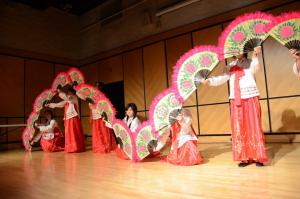 Begin the process of applying for funding. Funds are available from a variety of campus sources, including the Undergraduate Organizations Funding Committee (UOFC) and the Creative and Performing Arts Fund (CPA). Some dance groups secure funding by charging for admission to their performances. In order to apply for a UOFC grant, please use the UOFC Application Form which can be found on the Yale College Council (YCC) Orgsync platform. If possible, the CPA application should be submitted by the producer. You will need to carefully track your spending. The Producer Budget Worksheet is set up to help you track spending against multiple funding sources. Contact UP for a copy. Keep in mind that each funding source comes with its own stipulations. For example, shows that use CPA funding cannot charge for admission.
Begin the process of applying for funding. Funds are available from a variety of campus sources, including the Undergraduate Organizations Funding Committee (UOFC) and the Creative and Performing Arts Fund (CPA). Some dance groups secure funding by charging for admission to their performances. In order to apply for a UOFC grant, please use the UOFC Application Form which can be found on the Yale College Council (YCC) Orgsync platform. If possible, the CPA application should be submitted by the producer. You will need to carefully track your spending. The Producer Budget Worksheet is set up to help you track spending against multiple funding sources. Contact UP for a copy. Keep in mind that each funding source comes with its own stipulations. For example, shows that use CPA funding cannot charge for admission.
Apply for a performance space. Application for theater venues is integrated into the CPA application. The application, along with additional information about the CPA Awards, may be found on the Creative and Performing Arts website. Whether or not they are using the CPA to apply for funds, all dance groups must also complete the UP Dance Application to apply for a venue. This form is only available during each CPA application period. Students may apply in September for projects proposed in the Fall semester, or that will be produced prior to Spring Break. Students may apply in January for projects produced at any time during the Spring semester. After each application cycle, remaining performance time slots are awarded on a rolling basis. Application for limited dates in the Co-op and ECA theaters is handled by special arrangement at the beginning of each academic year. Details are emailed to the dance leader panlist each year. When applying for venues, remember the following:
- Keep in mind that not all venues are suitable for dance. Any high impact dance activity needs to take place on a “sprung” floor. Venues that have sprung floors include the Off Broadway Theater, Morse-Stiles Crescent Theater, the Hopper Cabaret, and the Lighten Theater. A complete list of venues, and information about their floor surfaces, may be found here. Undergraduate Production also has a portable sprung floor that can be used for a fee.
- Consider applying for dates in the fall or the early spring. The second half of the spring semester is the busiest time in performance spaces and therefore the most difficult time to secure space in the OBT or the Crescent.
- For groups that do wish to perform at the end of the spring semester, sharing a week-long slot is a good way to increase your chances of securing space in the OBT or Crescent Theater. When two groups share a week-long residency, they may not both perform on the same day.
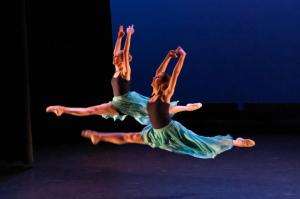
- Be sure to list all of your company members and their college affiliations on your space application. This information is required to secure the Crescent Theater.
- The Off Broadway Theater is booked based on input from a student committee. Dance leaders are welcome on the committee. Please contact justin.deland@yale.edu to inquire about serving.
If you are not using the CPA application, contact UP to start a conversation about your event.
Step 2: Schedule a meeting with your Technical Director
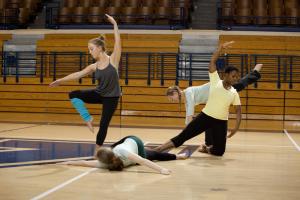
As soon as you receive confirmation of funding and approval to use a venue, set up an appointment with one of the UP Technical Directors to discuss your project. The goal is to discuss the scope and scale of your project and establish a plan for realizing your vision. This appointment should take place no less than four weeks prior to the date you intend to load into a theater space. As many of your production staff members as possible should attend.
Step 3: Assemble a qualified staff
Your staff should include a lighting designer, costume designer, and other roles specific to the needs of your production. A good way to recruit production staff members is to place announcements on the Yale Drama Coalition website and in the Yale Dramatic Association newsletter. During this time feel free to contact the UP staff for any guidance or assistance that you may need.
Looking for people who have already worked as TDs or Lighting Designers? Search by position on the YDC website, then sort by date. Here are the lists for TDs and Lighting Designers.
Step 4: Pre-production
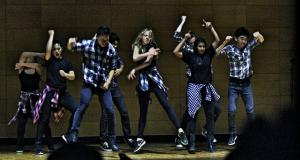
- A Content Advisory form should be created for your production, and shared with your production team. This should be a living document, and is designed to be updated as the production and the show evolve.
- The UP/ADAY Dance Costume Collection is a resource for storing and sharing dance costumes.
- A Vendors List of local service and equipment providers is available to support your production needs.
- UP will notify you of the date and time of your required safety and fire inspection. Your Producer should be present for this inspection.
- Complete your lighting plot at least one week prior to load in and submit this plan to UP. Once your plan has been approved, make arrangements to borrow equipment from on-campus inventories or to rent if necessary.
Step 6: Load In / Production
A final check-in meeting with a UP staff member should take place two or three days prior to your load-in date to confirm that you are ready to load your show into the performance space. You are responsible for coordinating the efforts of all your staff members within the parameters of your approved plans. Depending upon the location, scope, and scale of your production, some of this work may require supervision by a UP Technical Director.
Given the varied and intense schedules of Yale College students, fatigue is a very real safety concern. Load in and tech are especially busy times. The entire production team share responsibility for prioritizing health and safety (and academic commitments). Producers and Stage Managers play a crucial role. Undergraduate Production recommends that no student work for more than 4 hours before taking a break of at least 30 minutes, that no work call total more than 9 hours, including breaks, and that work calls be separated by a rest period of at least 10 hours. In addition, please be aware that there is a firm curfew of midnight for all production activity, with the exception of strike, which may continue until 1am, or later with UP staff supervision. Production activity includes meetings. Production teams should be exiting the theater or rehearsal room no later than midnight.
Step 7: Fire Inspection
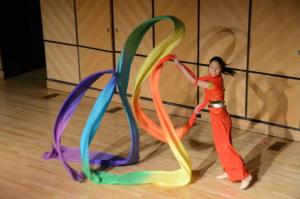
Your Fire Code Compliance inspection will usually take place one or two days before your production opens, between 4:00 and 6:00 pm. The show Producer is required to be present for the inspection. Prior to your inspection you must hold a fire drill/evacuation with the entire cast and crew. Once accomplished, fill out the Fire Drill Log and have it available during your inspection. Any concerns identified during the fire inspection must be rectified prior to opening night. Repeated failure by a group to attend or be prepared for fire inspections will be taken into account during the following venue booking cycle.
Step 8: Strike and Post-Production
Immediately following the final performance your staff will begin striking your show from the theater by cleaning and returning the space to its original condition. Again, depending upon the location of your event and the scope of the project, portions of this work may require supervision by a UP Technical Director.
Step 9: After Strike
The day after your strike, return equipment, props, and any other borrowed or rented items. The producer may delegate these tasks, but will be held accountable for their completion.
